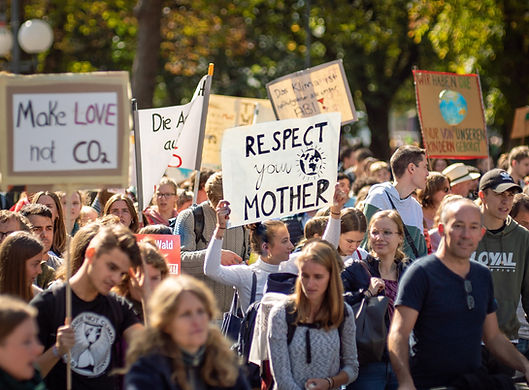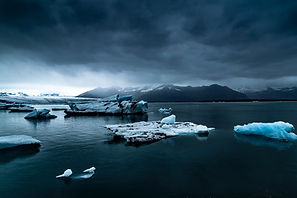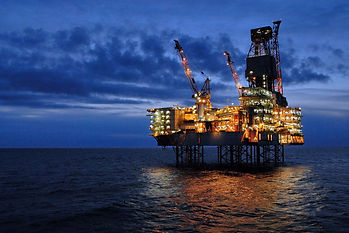
The Lawsuit

During the 2015 United Nations Climate Change Conference, an agreement was negotiated by 196 parties in Paris, France. We often refer to this agreement as the Paris Accords. This agreement is a treaty on climate change, that covers the climate change mitigation, adaptation and finance aspects of it.
The Paris Agreement was opened for signature on 22. April 2016, with the agreement entering into force on november 4. 2016. As of November 2021, 193 members of the United Nations Framework Convention on Climate Change are parties to the agreement.

Simultaneously as the coorpation and agreements are being made in the UN, there is an ongoing process in Norway, to give access to 10 new licences for oil exploration in the Barents Sea. In June 2016 the Norwegian government grants these licences, meaning that there will be exploring and drilling for oil in new, untouched areas, furter north and further east than ever before.

In response to the new drilling licences that were given, Greenpeace and Natur og Ungdom (Young Friends of the Earth Norway) decides to sue the Norwegian state in october 2016.
The first round of the lawsuit was presented to the court in November 2017. The main argument of the plaintiff was that 10 new licenses for oil exploration in the Barents Sea are a breach of the Norwegian Constitution’s §112 which is to secure the right to a livable climate for us and future generations, but this argument did not win. However, the judge concluded that the paragraph is indeed a rights provision article, and that climate is included in the provision.
HOVER OVER
§112
Every person has the right to a healthy environment. Natural resources should be managed so that future generations are not compensated.
The authorities of the state shall take measures for the implementation of these principles.



The environmental organizations then appealed the decision, and the case came before the appeal court in November 2019. The organizations did not win support for their claim that the decision to grant permits through the 23. round of concessions is a breach of §112.
The judgement nevertheless gave the organization important partial victories, such as the ruling that the article is a provision of rights. In addition, the judgement concluded that Norway also has a responsibility for emissions from the oil that it exports to other countries.
The granted permits pave the way for new oil discovery and oil extraction from new areas even though burning of the already discovered petroleum resources will result in global warming beyond the agreed target of 1,5 degrees.
Q&A
Questions and answers about the lawsuit.
Hover over for the answers.

What is the European Court of Human Rights (ECtHR)?
The ECtHR is an international court, located in Strasbourg, France. The court is a part of the Council of Europe, where Norway is one of the 47 members.

Will an ECtHR judgment overrule the judgment from the Norwegian Supreme Court?
The ECtHR is not a supernational body with the power to overrule judgments from national courts of law. But the ECtHR may instruct Norway to change policies or implement actions to amend the environmental damage.

What are the consequences of a victory?
The Court judges that Norwegian oil and gas policy does not take sufficiently into account climate considerations, such as assessing climate impact when issuing new licenses for oil and gas extraction. In the context of the 23rd licensing round, this implies that the court judges the licenses to be invalid.
If the ECtHR issues this judgment, it will create significant pressure for Norway to change its oil and gas policy. If the result is the application of a “Paris test” of new Norwegian oil and gas expansion, it would be a huge victory.
Having the case accepted for deliberation is a victory, as most applications to the ECtHR are rejected. If the application is admitted, this is a recognition that the question of Norwegian oil and gas extraction is important enough to be heard by an international court.

What if Norway does not comply with the judgment?
The ECtHR has no formal sanctions against Norway if Norway does not comply with the judgment voluntarily. On the other hand, given a judgment, it is likely that the question will be an issue which might be raised again by other nations, and will affect Norway’s relation to the EU (European Union) and European countries.

What happens if Greenpeace and others lose?
If the case is accepted, but the ECtHR dismisses our claim, nothing changes. Oil and gas companies may continue as before. We have expanded all legal means to stop these licenses and will continue working to stop it in other ways.

How long will it take to get a judgment?
The ECtHR states as a goal that it should not take more than three years from an application is filed to a judgment, but this is not strictly heeded, and it’s hard to say how long it will take. We are going to apply for an expedited process, and if accepted, our case will be heard on a quicker timeline.

Why the ECtHR, didn’t you just lose in the Norwegian Supreme Court?
The judgment from the Norwegian Supreme Court was not unanimous. Four of the 15 judges voted that the oil expansion was invalid due to Norway not undertaking sufficient assessment of climate impacts when issuing licenses for oil and gas extraction. This is a reason for having the case heard again, in order to expand on these arguments, and view them considering the European consensus on environmental impact assessments.

What is the likelihood of winning?
The ECtHR has never heard of a similar case previously, so the probability of victory is unknown. If the application is admitted, it will be an important recognition of our fight against oil expansion in the Arctic. If the application is admitted and the case heard, the endpoint might be a full victory, partial victory, or a loss. We will still have accomplished raising awareness about the issue, and we will have tried every means to stop Arctic oil drilling.
